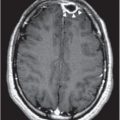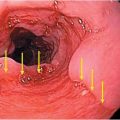| Usually susceptible | Variable | Usually resistant |
|---|---|---|
| Penicillin and derivatives Ampicillin (± sulbactam) Amoxicillin (± clavulanate) Ticarcillin (± clavulanate) Piperacillin (± tazobactam) | Semisynthetic penicillins Oxacillin Dicloxacillin Cloxacillin Nafcillin | Vancomycin Clindamycin Erythromycin (oral) |
| Second- and third-generation cephalosporinsa Cefuroxime Cefotetan Cefoxitin Cefiximeb Cefprozilb Loracarbefb Cefpodoximeb Ceftriaxone Ceftizoxime Cefotaxime Ceftazidime Advanced-generation cephalosporins Ceftarolineb | Cefaclor First-generation cephalosporins Cephalexin Cefazolin Cephradine Cefadroxil Erythromycin (IV) Aminoglycosides Gentamicin Tobramycin Amikacin | |
| Ciprofloxacinb | ||
| Chloramphenicol | ||
| Trimethoprim–sulfamethoxazoleb | ||
| Aztreonam | ||
| Imipenem | ||
| Tetracycline | ||
| Doxycycline |
Table 146.2 Doses of the most efficacious agents for treatment of Pasteurella multocida
| Agent | Oral | Parenteral |
|---|---|---|
| Penicillin V | 500–750 mg q6h | |
| Penicillin G | 10 million to 20 million units/d divided q4h | |
| Amoxicillin (± clavulanate) | 250–500 mg q6h | |
| Ampicillin | 250–500 mg q6h | 1–2 g q4–6h |
| Ampicillin–sulbactam | 1.5–3 g q6h | |
| Ticarcillin–clavulanate | 3.1 g q4–8h | |
| Piperacillin | 3–4 g q4–6h | |
| Cefuroxime | 250–500 g q12h | 750 mg–1.5 g q8h |
| Cefoxitin | 1–2 g q4–8h | |
| Cefotaxime | 1–2 g q4–8h | |
| Ceftriaxone | 1–2 g q24h | |
| Ciprofloxacin | 500–750 mg q12h | 400 mg q12h |
| TMP–SMX | 160 mg TMP (1 DS tab) BID | 10 mg/kg/d TMP divided q6–12h |
| Aztreonam | 500 mg–2 g q6–12h | |
| Imipenem | 500 mg–1 g q6–8h | |
| Meropenem | 2 g q8h | |
| Tetracycline | 250–500 mg q6h | 500 mg–1 g q12h |
| Doxycycline | 100–200 mg q12h | 100–200 mg q12h |
| Chloramphenicol | 12.5–25 mg/kg q6h | 12.5–25 mg/kg q6h |
Abbreviations: TMP–SMX = trimethoprim–sulfamethoxazole; DS = double strength.
While Pasteurella is universally resistant to clindamycin and vancomycin, most strains are resistant to erythromycin, and only moderately sensitive to aminoglycosides.
Prophylactic antibiotic

Stay updated, free articles. Join our Telegram channel

Full access? Get Clinical Tree





